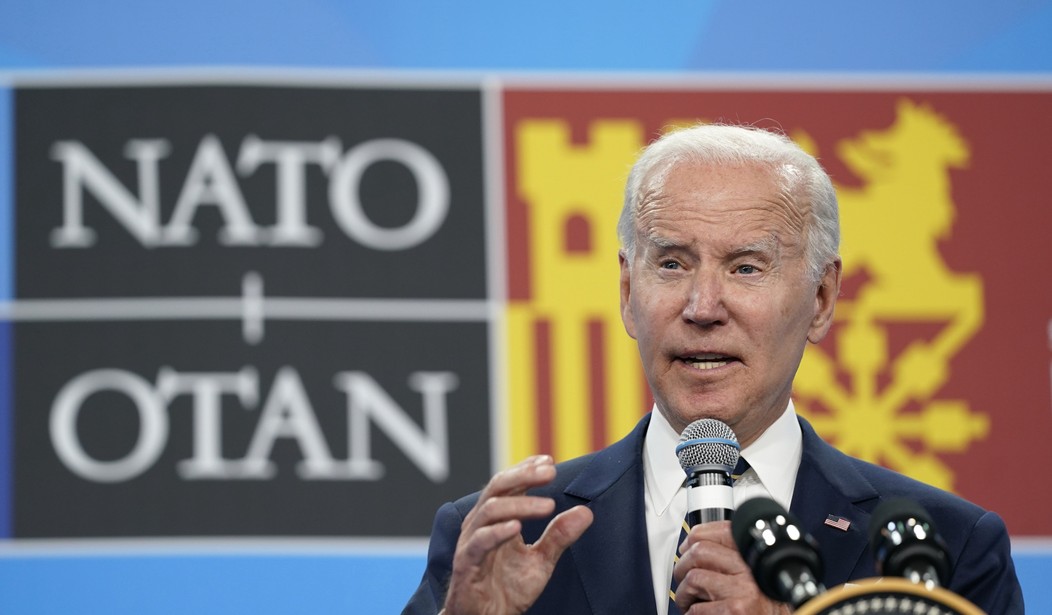An amendment to the National Defense Authorization Act (NDAA) would prevent any president from unilaterally withdrawing from the NATO alliance without an Act of Congress or Senate approval.
As my colleague Matt Margolis points out, the authority for any president to withdraw from NATO probably depends on Senate approval. However, the amendment was specifically put into the NDAA to prevent Donald Trump from fulfilling his many threats to take the U.S. out of NATO.
“NATO has held strong in response to [Russian President Vladimir] Putin’s war in Ukraine and rising challenges around the world,” Sen. Tim Kaine (D-Va.) said in a statement. Kaine and Sen. Marco Rubio (R-Fla.) co-sponsored the legislation.
Kaine added that the legislation “reaffirms U.S. support for this crucial alliance that is foundational for our national security. It also sends a strong message to authoritarians around the world that the free world remains united.”
Rubio said the measure served as a critical tool for congressional oversight.
“We must ensure we are protecting our national interests and protecting the security of our democratic allies,” he said in a statement.
Trump is not mentioned directly in the provision. He has also not explicitly promised to withdraw from what was originally a Cold War-era alliance. Nonetheless, there are persistent fears that if Trump wins the 2024 presidential election, he will withdraw the US from NATO. As The New York Times pointed out recently, Trump's campaign website does include this vague sentence, "We have to finish the process we began under my administration of fundamentally re-evaluating NATO's purpose and NATO's mission.
Trump's real beef with NATO is the collective defense provision of the NATO treaty known as Article 5. In some scenarios, the U.S. would be forced into war if a tiny nation invited an attack or even initiated it.
Finland sits on the border with Russia. Russian President Vladimir Putin has been aggressive in his moves toward his neighbor, which is the primary reason Finland wanted to join NATO. Would Finland push back against Russia if Putin got too aggressive? And if Putin attacked Finland, wouldn't that obligate the U.S. to come to Finland's defense?
An alliance is only as strong as its weakest member as Germany found out in World War I. Austria-Hungary had no business drawing Germany into its war with Serbia, and the Kaiser had no business coming to the defense of Austria. The resulting clash of empires needn't have happened, as Barbara Tuchman brilliantly points out in "The Guns of August."
There is uncertainty in whether Trump would have the authority to end the NATO alliance with a stroke of his pen.
It's not entirely clear if Trump or any president could unilaterally pull the nation out of NATO even if the provision didn't pass. The US Consitution requires presidents to seek Senate approval for treaties, but there are disagreements on whether Senate approval is needed to end a treaty. As the Times pointed out, courts have previously tried to avoid settling such disputes.
Under the provision, a president would be required to notify key committees in both the House and Senate no later than 180 days before deliberating whether to "suspend, terminate, denounce, or withdraw" from NATO. If a president pressed forward, a withdrawal would require an act of Congress or 2/3rds of the senators present to approve of such an action.
As commander-in-chief, Trump could order troops to go anywhere, including stateside. It would be hard tor NATO countries to depend on the U.S. if its troops weren't on the continent.
But unless Trump wants to destroy the NATO alliance, it's doubtful he'd even try to take the U.S. out of NATO. The decision would be too fraught and dangerous given the times we live in. NATO has been a bulwark against Russia for 75 years. Trump may threaten NATO thinking he can extract financial and other concessions from NATO members.
It didn't work last time, and there's no reason to think it will work this time around.










